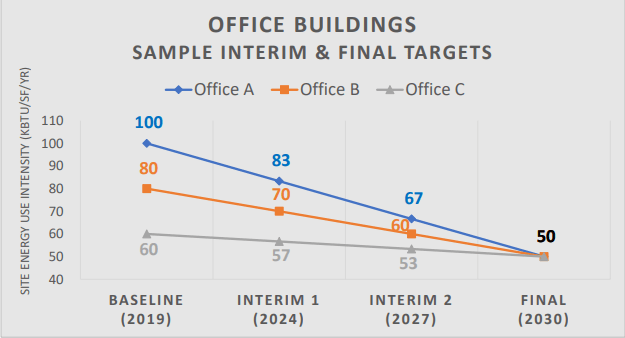Within weeks of the Colorado General Assembly’s adoption of a Building Performance Standard, the Energize Denver Task Force released draft recommendations for the City and County of Denver’s building performance policy. For the next two weeks, the Denver Office of Climate Action, Sustainability, and Resiliency (CASR) and members of the Task Force will meet with community members and stakeholders to introduce the draft recommendations and collect feedback. The process included a technical briefing and comment session on July 21, followed by a less technical briefing and comment session on July 28; to register, visit the city’s website. In addition to the comment sessions, Denver has issued a community engagement survey to collect input from the public on the policy recommendations. The Task Force will reconvene in August to examine the public feedback and finalize the policy recommendations. From there, CASR staff will develop an ordinance to send to the Denver City Council later this year.
The draft policy recommendations feature two building performance policies: 1) a building performance standard (BPS) with energy efficiency and renewable energy requirements and 2) a renewable heating and cooling policy with electrification requirements. The recommendations also include measures to assure that the performance policies will advance equity in Denver.
Recommendation 1: Building Performance Standard
The BPS policy is based on the “trajectory approach” developed by IMT for its BPS model ordinance. The recommended BPS requirements would apply to commercial and multifamily buildings 25,000 square feet and larger. The recommended BPS would require that by 2030 each building meet a maximum site energy use intensity standard based on its occupancy type. The 2030 standards for each property type would be set so that aggregate energy use would decrease by 30% across all covered buildings.
The recommended BPS would also require buildings to meet interim standards in 2024 and 2027 to ensure progress toward the final standard. Each building’s interim performance levels would be determined by its individual performance trajectory. Denver would draw a straight line from the building’s baseline performance in 2019 to the final standard to determine its interim performance targets. This trajectory approach’s blend of final and interim standards gives building owners certainty about where their buildings’ performance ultimately needs to be, while preventing them from delaying improvements unnecessarily. By giving each building a unique performance improvement trajectory, this approach recognizes that buildings start at different levels of performance and fairly and realistically distributes the level of effort required to reach the common performance goal. For a visual representation of the trajectory approach, see the diagram below depicting three hypothetical office buildings.

The draft policy recommendations also call for alternate compliance options to provide more flexibility to building owners. These include 1) a process that building owners could use to request an alternative timeline or an adjusted final performance standard, and 2) a prescriptive compliance option to enable smaller buildings to comply with the 2024 and 2027 interim standards by fully or partially electrifying space and water heating.
Recommendation 2: Renewable Heating and Cooling Policy
The renewable heating and cooling policy would apply to all commercial and multifamily buildings in Denver and require full or partial electrification. Starting in 2025 or 2027—depending on the equipment type used—building owners and operators would need to choose heat pumps instead of gas heating and water heating equipment at time of replacement. Leading up to those dates, Denver will provide financial incentives for early adopters of heat pump technologies. After those dates, incentives would only be available to under-resourced buildings to help them achieve capital-cost parity with gas replacements.
Recommendation 3: Equitable Workforce Provisions
The draft recommendations also include innovative equity provisions such as 1) labor standard requirements for contractors to be eligible for city incentive dollars and 2) programs the City should operate to help people from under-resourced communities and communities of color access job training and placement programs related to the expected workforce demand that these policies would induce.
